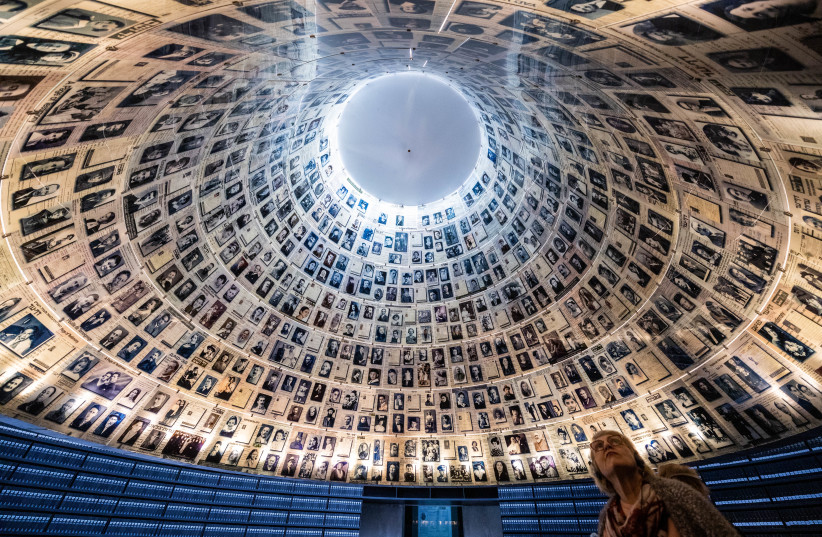The recent conviction of Robert Bowers, the gunman who took the lives of 11 worshipers at Pittsburgh’s Tree of Life synagogue five years ago, comes during a time when there has been a sharp rise in the number of antisemitic incidents in the United States and abroad. As a result, US President Biden recently announced a comprehensive 100-plus step plan to combat the rise in antisemitism in our country.
This announcement follows the Anti-Defamation League’s spring report revealing antisemitic incidents increased by 36% in 2022 compared to 2021. Many of the original European settlers came to this land as a refuge from religious persecution, and later founded our nation on principles of freedom and equality. So why are we grappling with a resurgence of hatred and antisemitism here today?
Regardless of the cause, I believe the solution starts with cultivating kindness and understanding for all people – despite our differences – in the face of a world that often seems determined to drive us apart. This means seeking experiences that challenge us and listening to one another to discover the stories and perspectives we bring.
My own story begins just over 100 years ago – but could have been cut short before I even reached adulthood. From the age of 16 to 21, I was sent to a dozen Holocaust labor and death camps, including twice in the Warsaw ghetto and once in Auschwitz. I narrowly survived countless horrific circumstances and witnessed dire atrocities. Six million other Jews, including all of my family, were not as lucky.
There were many times where, if not for the kindness of others, I too may have died. For example, in 1939, I was forced to go to a labor camp after Nazi Germany invaded Poland. We were cold, barefoot and working in water wading up our legs. I contracted blood poisoning and nearly died. Working civilians shared their food with our group of prisoners at the camp, though surely they themselves were hungry too. I survived.

They could have let me suffer, but they instead extended compassion, even as the Nazis were actively demonizing and dehumanizing my people. This small act of kindness has stayed with me ever since, inspiring me to dedicate my life to combating antisemitism, something I did not foresee as a necessity eight decades later.
Antisemitism on the rise once again
Today, as antisemitism is on the rise once again, we must continue the hard work to combat this growing hate with love and understanding – before it escalates any further. I believe that somewhere within our human nature there lies an inherent goodness, a principle of right and wrong that transcends borders, religion, race, or any of our myriad differences.
By no means does this belief excuse, or even soften, the trauma I endured. I have lived through unimaginable horrors and witnessed the evils of which humanity is capable. I lost both of my parents, my five siblings, and numerous aunts, uncles, cousins and friends at the hands of the Nazis’ hatred and cruelty. One never truly recovers from the pain of such losses. I think about it every day.
However, in the many years that I’ve lived since surviving the Holocaust, I have also seen the deep capacity for compassion and love within each of us – despite our many differences in experiences and beliefs. This is the side of humanity that needs to be nurtured and cultivated.
In his 1963 book, Strength to Love, Dr. Martin Luther King Jr. writes: “Returning hate for hate multiplies hate, adding deeper darkness to a night already devoid of stars. Darkness cannot drive out darkness; only light can do that. Hate cannot drive out hate; only love can do that.”
I believe that the kind of love that Dr. King is alluding to in these lines comes through education and understanding of others. In order to cultivate such an understanding, we must take it upon ourselves to share our own experiences and learn from the lives of others.
This is why I believe it is important to write and speak about my years in concentration camps, as difficult as they are to relive. Holocaust education in our nation’s schools should be mandatory for a better society and a better world.
We must not repeat the darkest moments of our history. I speak many times a week at public and private schools, both national and international universities, museums, and events, such as the recent ceremony announcing a traveling Auschwitz exhibition which debuted at the Ronald Reagan Presidential Library, featuring hundreds of artifacts from more than 20 institutions and private collections around the world.
As First Lady Jill Biden said during her Jewish Heritage Month celebration remarks in May, the “history lives on’’ in all of us. By immersing ourselves in these spaces and the stories and histories they contain, we learn from one another and remember the millions of innocent lives lost.
Exhibits like this make history real, and nurture the curious, loving side of humanity that needs to flourish to ensure such tragedies never reoccur. Future generations are counting on us.
The writer is a Holocaust and Auschwitz survivor who often speaks about his experiences at museums, schools, and community gatherings.
